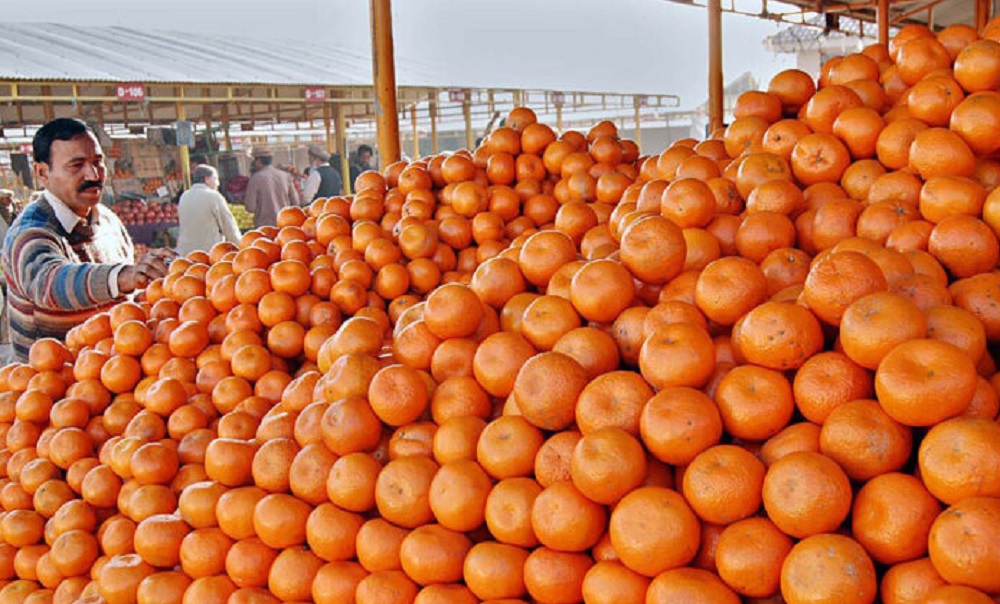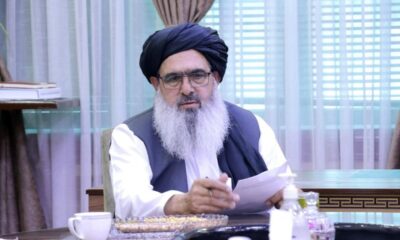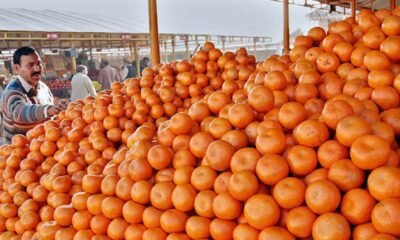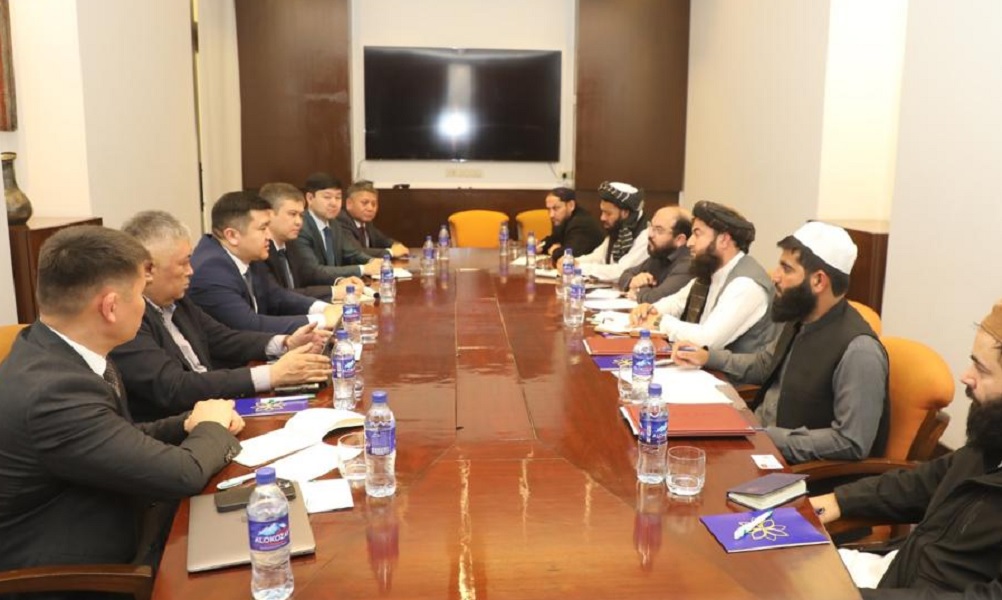Business
IEA tightens currency controls after dollar smuggling report

The Islamic Emirate of Afghanistan (IEA) imposed fresh restrictions on people carrying foreign currency out of Afghanistan, in a rare directive from the prime minister’s office.
The restrictions were imposed after a report published in Bloomberg stated that millions of dollars were being smuggled into the country each day from Pakistan.
Tuesday’s order from Mullah Mohammad Hassan’s office spelled out new currency limits clearly for the first time and laid out new punishments — up to a year in prison. While a $5,000 limit was already in place, the new edict added that the amount people could take out via road border crossings was now only $500 and barred the transport of gold or precious stones out of the nation.
“If someone transfers a million dollars, he will be imprisoned for a year, and for one hundred thousand dollars, he will be jailed for a month and for less than the amount, he will receive ten days in jail,” the edict said.
The IEA also reiterated that bringing in foreign currency is “prohibited,” without specifying how much and under what circumstances. Before the report’s publication, the Afghan Finance Ministry had said that it encourages individuals to bring in any value of foreign currency.
Bloomberg reported Tuesday that traders or smugglers are bringing as much as $5 million into Afghanistan from Pakistan every day, which was providing some support for the country’s squeezed economy after the US and Europe denied the IEA access to more than $9 billion in foreign reserves.
However, the illicit dollar inflow into the country is exacerbating a rapidly developing economic crisis in neighboring Pakistan.
Economic experts consider this work of the Islamic Emirate to be important for maintaining the financial stability and value of the afghani currency, and they say that governments have an obligation to support their currency value.
Business
Pakistan’s kinno exports falter as tensions with Afghanistan continue

Pakistan’s kinno exports remain far below potential as regional tensions, high freight costs and weak government support continue to choke the citrus trade.
Despite being a leading global citrus producer, Pakistan is expected to export just 400,000–450,000 tonnes of kinno in the 2025–26 season, compared with an estimated capacity of 700,000–800,000 tonnes.
Exports in 2024–25 stood at around 350,000–400,000 tonnes, mainly to Russia, the UAE, Saudi Arabia, Afghanistan, Indonesia and Central Asia. While better fruit quality this season has raised hopes, persistent crossing disruptions—especially with Afghanistan—and transport bottlenecks have offset gains.
Growers say prices have collapsed sharply, forcing panic sales. Rates for large kinno have fallen from over Rs120 per kg early in the season to as low as Rs75, while smaller fruit is selling for Rs35–40 per kg amid weak demand.
Industry leaders warn the crisis is crippling processing units and jobs. More than 100 factories reportedly failed to open this season, with dozens more shutting down as exports stall. Cold storages in Sargodha are nearly full, putting fruit worth millions of dollars at risk of spoilage, while growers fear losses of up to Rs10 billion.
Exporters are urging the government to urgently resolve issues, subsidise logistics, and help access alternative markets, warning that prolonged inaction could devastate farmers, workers and the wider economy.
Business
Pezeshkian pledges to facilitate Iran-Afghanistan trade

Iranian President Masoud Pezeshkian has said that Tehran will facilitate trade and economic exchanges with Afghanistan, including easing procedures at customs and local marketplaces.
He made the remarks during a televised interview following his visit to South Khorasan province, which shares a border with Afghanistan.
Pezeshkian, in a separate event addressing local business leaders, highlighted the province’s strategic advantages, citing its rich mineral resources, proximity to neighboring countries such as Afghanistan and Pakistan, and access to the ocean via the Chabahar port. He described the region as “a golden opportunity not found everywhere,” emphasizing its potential for economic growth and cross-border commerce.
Business
Afghanistan-Kazakhstan banking ties discussed in Kabul meeting
-

 International Sports5 days ago
International Sports5 days agoILT20: Abu Dhabi Knight Riders end Desert Vipers’ unbeaten run in dramatic one-run win
-

 Latest News3 days ago
Latest News3 days agoAfghan border forces prevent illegal entry of hundreds into Iran
-

 Latest News2 days ago
Latest News2 days agoPakistan summons Afghan diplomat over deadly attack in North Waziristan
-

 Latest News3 days ago
Latest News3 days agoJapan allocates nearly $20 million in humanitarian aid for Afghanistan
-

 Latest News2 days ago
Latest News2 days agoAfghan health minister calls for medical cooperation between Kabul and New Delhi
-

 Latest News2 days ago
Latest News2 days agoKarzai urges reopening of girls’ schools and universities for Afghanistan’s bright future
-

 Health4 days ago
Health4 days agoAfghanistan seeks India’s support in standardizing traditional medicine
-

 World4 days ago
World4 days agoUS readies new Russia sanctions if Putin rejects peace deal, Bloomberg News reports

























